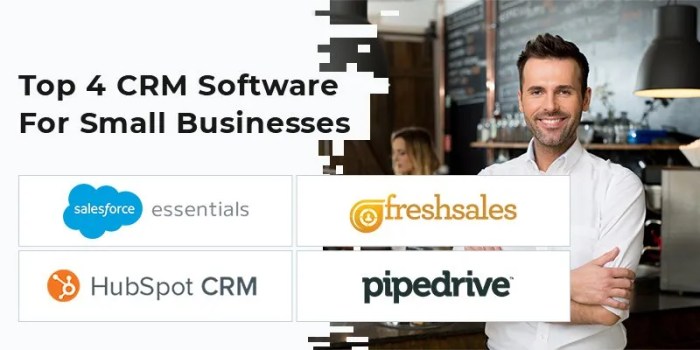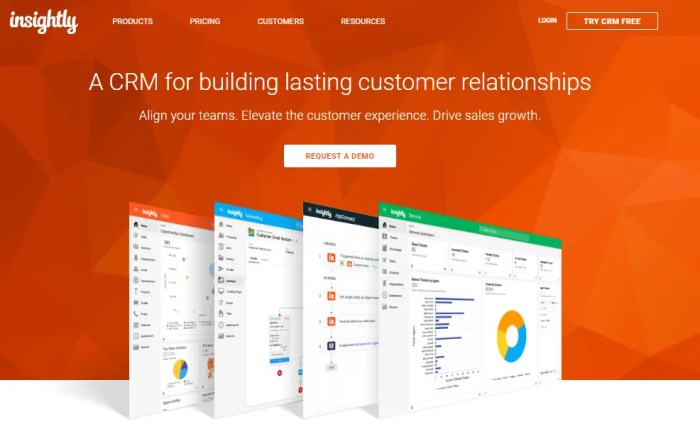Best crm software for large business – Choosing the right Customer Relationship Management (CRM) software is crucial for large businesses. A robust CRM system can streamline operations, improve customer engagement, boost sales, and ultimately drive significant revenue growth. However, with a plethora of options available, selecting the ideal platform can feel overwhelming. This comprehensive guide will delve into the key features to consider, explore leading CRM solutions tailored for large enterprises, and help you navigate the decision-making process.
Understanding the Needs of Large Businesses: Best Crm Software For Large Business
Large businesses have unique CRM requirements compared to smaller enterprises. They often deal with vast amounts of customer data, complex sales processes, and geographically dispersed teams. Therefore, their CRM needs to offer scalability, robust security features, advanced analytics capabilities, and seamless integration with existing systems. Key considerations include:

Source: commercient.com
- Scalability: The system must handle a growing number of users, contacts, and data without performance degradation.
- Security: Robust security measures are paramount to protect sensitive customer data, complying with regulations like GDPR and CCPA.
- Integration: Seamless integration with existing enterprise systems (ERP, marketing automation, etc.) is essential for efficient data flow.
- Customization: The ability to tailor the CRM to specific business processes and workflows is crucial for optimal efficiency.
- Advanced Analytics: Sophisticated reporting and analytics tools are needed to gain actionable insights from customer data.
- Multi-channel Support: Large businesses often interact with customers through multiple channels (email, phone, social media, etc.), requiring a CRM that supports omnichannel engagement.
Top CRM Software for Large Businesses
Several leading CRM platforms cater specifically to the needs of large organizations. Here are some of the most prominent options, each with its strengths and weaknesses:
1. Salesforce Sales Cloud
Salesforce is a market leader, known for its extensive features, scalability, and robust ecosystem of integrations. Its Sales Cloud offers comprehensive sales force automation, lead management, opportunity tracking, and advanced analytics. However, it can be expensive and require significant implementation time and expertise.

Source: workjo.com
Key Features: Sales force automation, lead management, opportunity tracking, account management, forecasting, reporting and analytics, mobile accessibility, AppExchange integrations.
2. Microsoft Dynamics 365
Microsoft Dynamics 365 is a powerful CRM solution deeply integrated with the Microsoft ecosystem. It offers a wide range of modules, including sales, marketing, customer service, and field service, making it suitable for diverse business needs. Its strong integration with other Microsoft products is a significant advantage.
Key Features: Sales automation, marketing automation, customer service, field service, project management, comprehensive reporting, integration with Microsoft Office 365.
3. Oracle Siebel CRM, Best crm software for large business
Oracle Siebel CRM is a mature and feature-rich platform known for its robust functionality and scalability. It’s particularly well-suited for large enterprises with complex sales processes and a high volume of customer interactions. However, it can be complex to implement and maintain.
Key Features: Sales automation, marketing automation, customer service, analytics, workflow automation, integration with other Oracle applications.
4. SAP CRM
SAP CRM is a comprehensive solution integrated with other SAP enterprise applications. It provides a holistic view of customer interactions across various departments. Its strength lies in its integration capabilities within the broader SAP ecosystem, making it ideal for organizations already using SAP solutions.
Key Features: Sales and marketing automation, customer service, service management, analytics, integration with other SAP applications.
5. HubSpot CRM
While often associated with smaller businesses, HubSpot’s CRM offers scalable options suitable for larger enterprises. Its strength lies in its comprehensive marketing automation capabilities and its freemium model which allows for gradual scaling. It’s a good option for businesses looking for a more integrated marketing and sales solution.
Key Features: Sales automation, marketing automation, contact management, email marketing, social media management, reporting and analytics.
Choosing the Right CRM for Your Large Business
Selecting the best CRM involves careful consideration of several factors:
- Business Size and Complexity: The size and complexity of your business will influence the features and scalability you need.
- Budget: CRM solutions vary significantly in price, ranging from affordable cloud-based options to expensive on-premise systems.
- Integration Needs: Consider the existing systems your CRM needs to integrate with, ensuring seamless data flow.
- User Adoption: Choose a CRM that is user-friendly and intuitive to encourage widespread adoption across your organization.
- Implementation and Support: Factor in the time and resources required for implementation and ongoing support.
Frequently Asked Questions (FAQ)
- Q: What is the average cost of CRM software for large businesses? A: The cost varies significantly depending on the vendor, features, number of users, and implementation complexity. Expect to invest a substantial amount, ranging from thousands to hundreds of thousands of dollars annually.
- Q: How long does it take to implement a CRM system for a large business? A: Implementation time can range from several months to over a year, depending on the complexity of the system and the size of the organization.
- Q: What are the key metrics to track after implementing a CRM? A: Key metrics include sales conversion rates, customer acquisition cost, customer lifetime value, customer satisfaction, and sales cycle length.
- Q: How can I ensure successful CRM adoption within my organization? A: Successful adoption requires thorough training, clear communication, and ongoing support. Choose a user-friendly system and involve key stakeholders in the implementation process.
- Q: What are the potential risks of choosing the wrong CRM? A: Choosing the wrong CRM can lead to wasted resources, decreased productivity, poor customer service, and ultimately, lost revenue.
Conclusion
Selecting the optimal CRM for your large business is a critical decision with long-term implications. By carefully evaluating your needs, researching available options, and considering the factors Artikeld above, you can choose a system that will empower your organization to achieve its business goals and enhance customer relationships.
References
Call to Action
Ready to optimize your customer relationships and drive business growth? Contact us today for a free consultation to discuss your CRM needs and find the perfect solution for your large business.
Popular Questions
What are the key features to look for in a CRM for a large business?
Scalability, robust reporting and analytics, advanced automation capabilities, strong security features, seamless integration with existing systems, and excellent customer support are paramount.
How much does CRM software for large businesses typically cost?
Pricing varies greatly depending on the features, number of users, and vendor. Expect a significant investment, often involving annual licensing fees and potential implementation costs.
What are the common challenges in implementing a CRM for a large organization?
Challenges include data migration, user adoption, integration with existing systems, customization needs, and ongoing maintenance and support.
How can we ensure successful user adoption of a new CRM system?
Comprehensive training, clear communication, ongoing support, and addressing user feedback are vital for successful adoption. Consider a phased rollout to minimize disruption.
